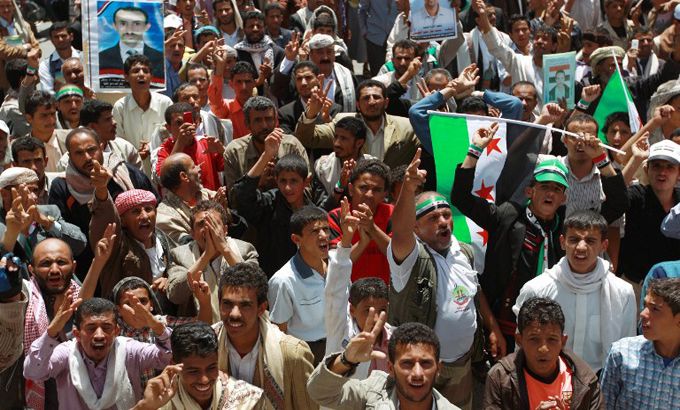Yemen begins dialogue over new constitution
Hundreds of representatives from various political groups gather in Sanaa to discuss roadmap under UN-backed deal.

Yemen has launched a UN-backed national dialogue aimed at paving the way for a new constitution and elections.
At least 500 representatives of Yemen’s various political groups – from secessionists in the south to Zaidi Shia rebels in the north, in addition to civil society representatives – are taking part in the dialogue in Sanaa, the capital.
The initiative, scheduled to run for six months, is being boycotted by hardline southern factions.
The factions staged a general strike and protests in the port city of Aden on Sunday against the process.
The participants in the dialogue aim to draft a new constitution and prepare for general elections in February 2014, after a two-year transition led by President Abdrabuh Mansur Hadi.
Yemen, the only country where the Arab Spring revolt led to a negotiated settlement, is holding the dialogue as part of a UN-brokered deal that eased former president Ali Abdullah Saleh out of office following an 11-month uprising against his 33-year rule.
The talks, originally scheduled to start in mid-November, were delayed mainly due to the refusal of factions in the Southern Movement to join the talks.
The movement is instead campaigning for autonomy, or secession, for the formerly independent south.
Independent states
Most southern factions have finally agreed to take part in the dialogue after months of negotiations and under UN pressure.
But the movement’s hardliners, led by South Yemen’s former president Ali Salem al-Baid, have said they prefer negotiations between two independent states in the north and south.
On Sunday, thousands of their supporters protested against the national dialogue, demanding that their region be seceded from the north.
Protesters carrying placards saying “No dialogue under occupation!, Independence is our choice!” demonstrated in Aden, waving flags of the formerly independent South Yemen which was united with the north in 1990.
“We are here by the thousands to reject the dialogue as it is an issue of northerners and those southerners who are involved in it do not represent the people,” Khaled Junaidi, an activist, told the AFP news agency.
On February 15, the UN voiced support for the national dialogue and threatened sanctions against any party impeding the talks, mainly referring to Saleh and Baid.
Despite his ousting, Saleh remains head of the formerly ruling General People’s Congress Party.
But a source from the dialogue’s preparatory committee told AFP that he will not represent his party at the talks, in which it has been granted the lion’s share of seats with 112 representatives.